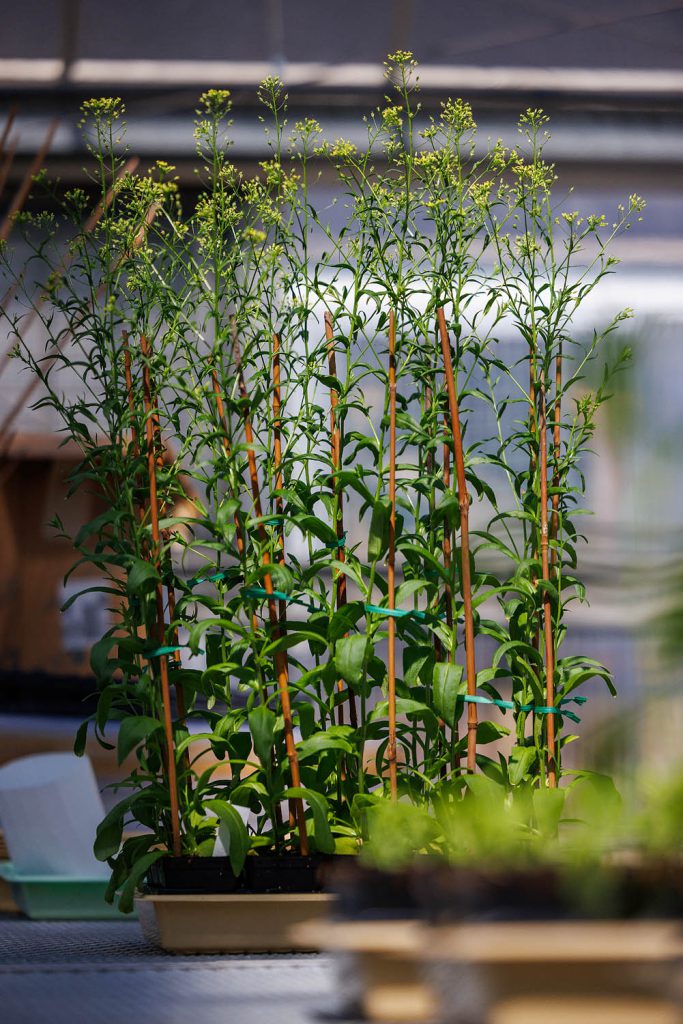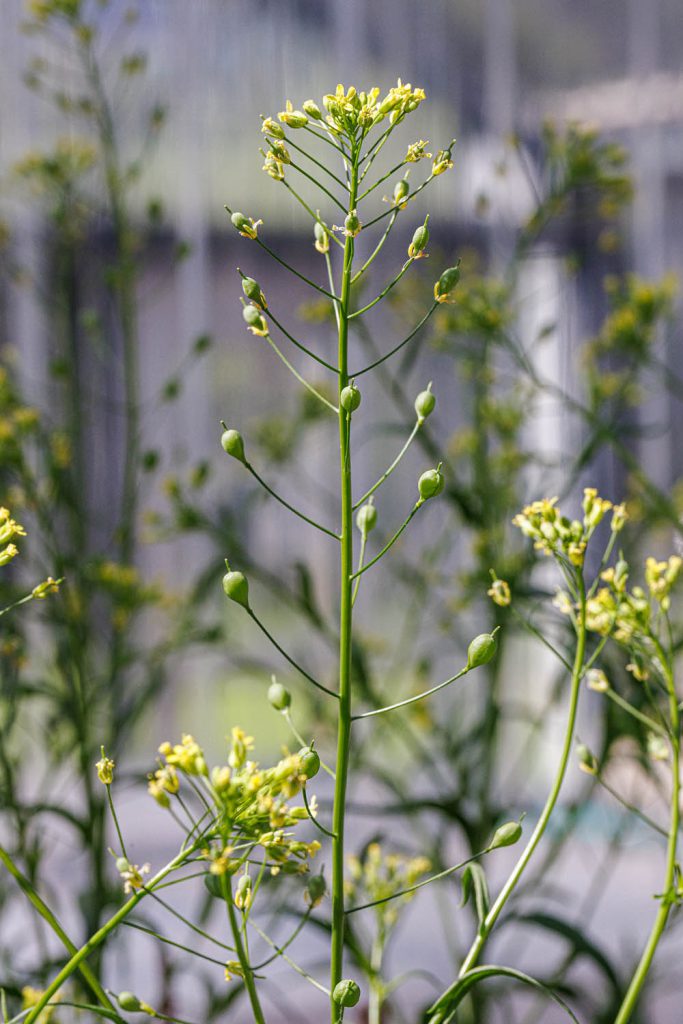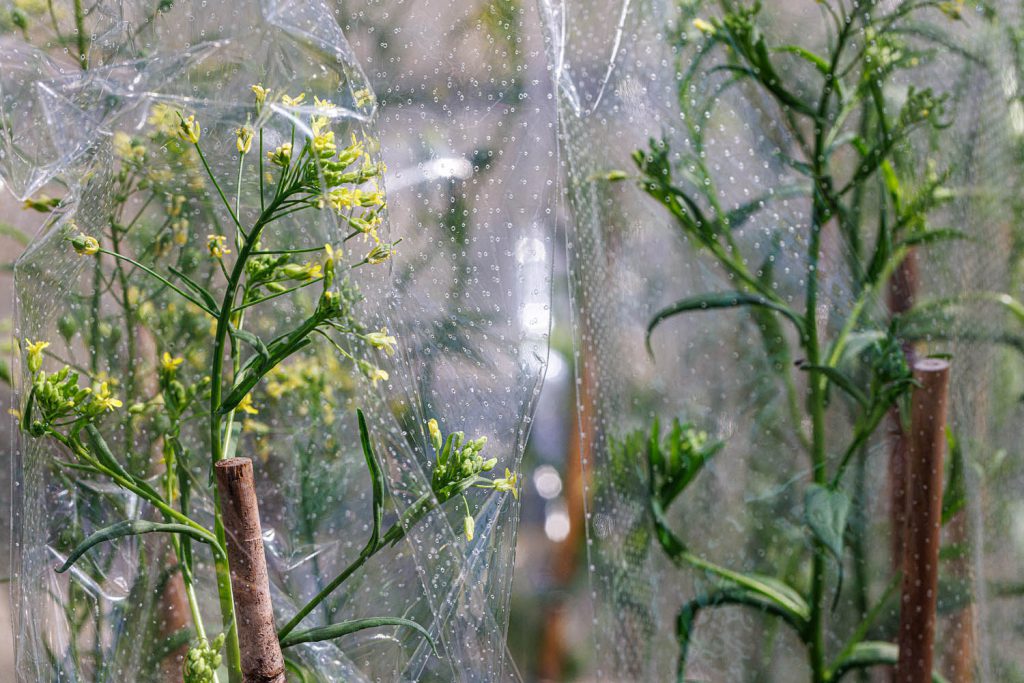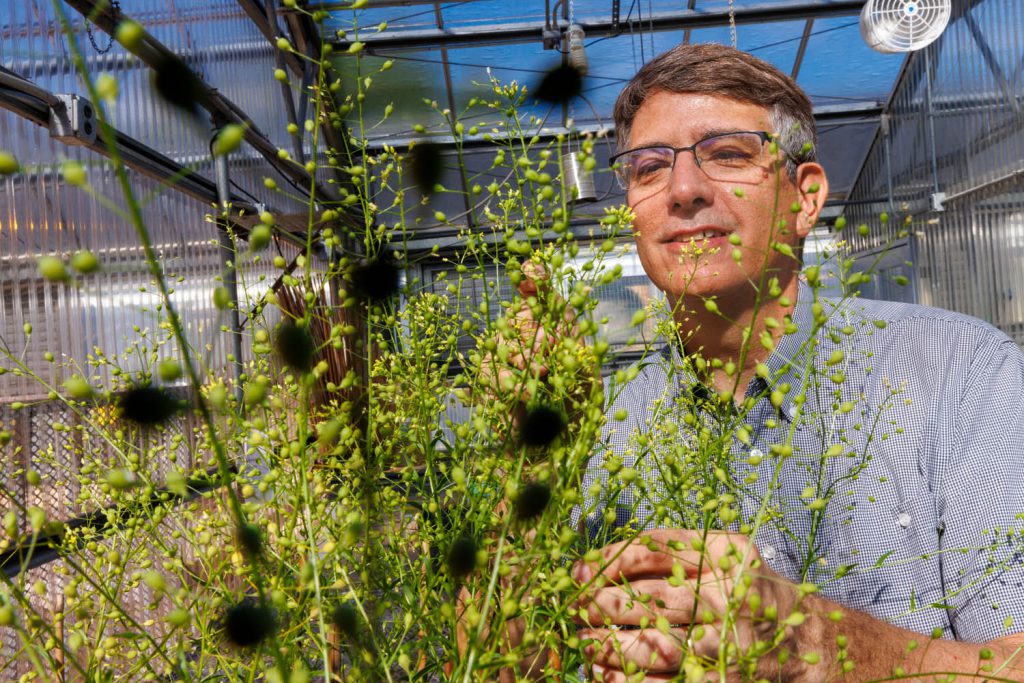Unlocking oilseeds’ biofuel potential
Electric cars are the way of the future – but the need for liquid fuels won’t disappear with jets, semitrucks and heavy equipment driving demand.
Nebraska biochemist Edgar Cahoon is leading an interdisciplinary team representing eight institutions to explore an environmentally friendly, sustainable liquid fuel source. With a five-year, $12.8 million grant from the U.S. Department of Energy, the team aims to unlock the potential for pennycress and camelina, both oilseeds, to produce renewable fuels, industrial chemicals and other bioproducts.



Researchers are targeting these oilseeds because they contain the fatty acids necessary for producing biofuels and biomaterials. They’re also resilient and grow on marginal land that can’t support food crops.
But at this point, the seeds’ makeup isn’t ideal.
“We’re trying to make not just more oil per seed, but oil of a more defined chemical structure to make biomaterials with more uniform and consistent properties,” said Cahoon, George W. Holmes Professor of biochemistry and director of the Center for Plant Science Innovation.
They’re accomplishing this through a unique fusion of fundamental and applied research. For the former, Cahoon’s team is studying a cell part called the plastid, a fatty acid “biofactory” in oilseeds. They are also exploring cuphea, another oilseed plant, which produces homogeneous fatty acids of an ideal length – characteristics the team aims to transport to pennycress and camelina.

Researchers are designing synthetic biology tools capable of genetically modifying plants rapidly and predictably. To do this, they are tapping CRISPR gene editing technology.
Cahoon’s team is pairing these tools with research findings to produce genetically enhanced camelina and pennycress. They are testing these new lines under diverse environmental conditions and using that data to make improvements.
Cahoon expects the team’s work to have benefits beyond pennycress and camelina. Their plastid metabolic circuitry tools and research will fuel work by scientists engineering next-generation plant oil feedstocks.
“The project really pushes the boundaries because we’re gaining fundamental knowledge while also developing advanced synthetic biology tools and then bringing these two pieces together,” Cahoon said.
Cahoon also collaborates with Tom Clemente, Eugene W. Price Distinguished Professor of biotechnology, to transform sorghum into a sustainable feedstock for renewable diesel and jet fuel. They recently received renewed funding of $4 million from the U.S. Department of Energy for this work, which they pursue as members of the Center for Advanced Bioenergy and Bioproducts Innovation, based at the University of Illinois Urbana-Champaign.
+ Additional content for Unlocking oilseeds’ biofuel potential








